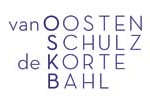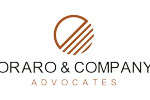Alexander Cappel discusses how the German legal landscape is going to change based on the future Corporate Criminal Liability Act
Over the past few years, we have noticed a large number of multi-jurisdictional enforcement actions against large corporate and financial institutions and US and UK authorities in particular have imposed significant fines, not only against the responsible individuals, but also against the legal entities involved. Compared to criminal penalties imposed by foreign authorities, administrative sanctions against legal entities in Germany have been rather moderate given German law does not provide for strict corporate criminal liability yet.
However, in summer 2019 the German Minister of Justice (Christine Lambrecht) announced the establishment of a legal framework for corporate criminal liability. Since then Germany has been eagerly awaiting the new Corporate Criminal Liability Act (Verbandssanktionengesetz, ‘VerSanG’) that will introduce the legal basis for sanctioning legal persons and other entities for corporate crimes. Since the first announcement that was made 18 months ago, the German corporate world has followed the legislative process of VerSanG very closely. In this period we have seen several revised drafts of the VerSanG and numerous strongly-worded statements from various associations. However, in October 2020 the final phase of the legislative process was eventually initiated. Therefore, it might well be that the VerSanG will come into force in the course of 2021.
Even though there is currently no corporate criminal liability in Germany, German courts and authorities nevertheless have the possibility to impose administrative sanctions on legal entities in case of criminal or administrative offences conducted by responsible managers based on the Administrative Offences Act (Ordnungswidrigkeitengesetz, ‘OWiG’). However, the VerSanG will be a big game changer for corporate legal entities, consultants and lawyers alike.
Possibility to impose major fines
A major aspect of the VerSanG will be the possibility to impose massive monetary fines. The addressees of the new VerSanG will be, in particular, companies within the private sector. Such companies can commit criminal offences either through their management personnel or through other persons otherwise acting for the respective company. If either of these persons commits a corporate criminal offence, corporations with an average annual turnover of more than €100m may face fines of up to 10% of their average annual turnover. Therefore, for large corporations, the future fines for corporate criminal offences could well be in the double-digits of billions. For comparison – based on the current provisions within the OWiG – monetary fines against legal entities shall amount to no more that €10m.
From discretionary system to mandatory prosecution system
One further change that will come with the new VerSanG will primarily affect the German prosecution authorities. As already stated, the possibility to impose fines on legal entities is currently included in the OWiG. This means that the decision on whether to prosecute an offence or impose a fine is at the discretion of the prosecuting authorities. This ‘opportunity principle’ is now to be abandoned by making reference to the general regulations and laws on criminal proceedings, in particular, within the Code of Criminal Procedure (Strafprozessordnung), which in turn states that the prosecution office shall be obliged to take action in relation to all prosecutable criminal offences, provided there are sufficient factual indications of such offences. Therefore, it is almost certain that the amount of criminal proceedings against corporations will increase significantly once the VerSanG comes into effect.
Promotion of compliance measures
Even though the possible monetary sanctions under the new VerSanG can be significantly higher than under the current legal framework, the new regulations also contain provisions that can relieve affected companies. For example, section 10 para 1 no 1 VerSanG provides that a monetary sanction might not be imposed on a corporation in the event that a criminal offence is being committed, but that a ‘mere’ warning can be sufficient if it is to be expected that the company will be able to avoid future criminal activities. According to the legislative explanatory materials, this might be the case if the incident was a standalone one and the company is otherwise already taking or has taken precautions to avoid comparable incidents.
It is almost certain that the amount of criminal proceedings against corporations will increase significantly once the VerSanG comes into effect.
Above all, the court will be able to instruct the corporation concerned to take certain precautions to prevent criminal offences (section 13 paras 1 and 2 VerSanG). Ultimately, this means that implementing compliance measures might prevent or at least reduce monetary sanctions in cases of misconduct. However, an exact definition on how compliance measures should be shaped in order to be considered as effective is not included in the VerSanG. The exact elements of a compliance management system must be determined by the respective company itself through a risk-based decision.
Internal investigations
The VerSanG also provides for a legal framework for internal investigations and sets an incentive for carrying them out. Under the VerSanG, sanctions against the legal entity in cases of criminal misconduct may be reduced if the legal entity significantly contributes to the clarification of the respective criminal offence by conducting an internal investigation (section 17 para 1 no 1 VerSanG), fully co-operates with the prosecution authorities (section 17 para 1 no 3 VerSanG) and provides them with all material results of the internal investigation (section 17 para 1 no 4 VerSanG).
Final conclusion
The most striking and interesting provision of the VerSanG is the possibility to impose substantial fines of up to 10% of their average annual turnover against legal entities, in cases of criminal misconduct being committed out of an organisation. This development clearly shows that Germany is slowly but clearly taking its cues from other jurisdictions (like the US) when it comes to penalising corporate criminal offences. Therefore, corporations should carefully evaluate and assess the effectiveness of their current compliance systems or implement additional measures, since this is still the most promising way to prevent criminal offences within the organisation in the first place, or at least to reduce any potential fines. Compliance measures that are being implemented in the aftermath of a criminal offence may also be helpful, since even under the current legal framework, such post-offence behaviour is taken into account as a mitigating factor by courts and authorities when imposing any sanctions. Therefore, when it comes to proper compliance, it is never too late to make changes.
About the author
Dr Alexander Cappel is a white-collar crime and compliance lawyer based in the Frankfurt/Main office of Norton Rose Fulbright. Dr Cappel advises both national and international companies on all issues concerning white-collar crime and investigations, administrative and legal proceedings, as well as compliance and anti-fraud measures. A primary focus of his work is advising on German and international regulations in the areas of export control and financial sanctions, anti-bribery and corruption as well as anti-money laundering.
Dr Cappel publishes work in law journals and the business press on a regular basis, alongside giving lectures on various compliance issues. Furthermore, he is visiting lecturer at different institutions of higher education (inter alia Université du Luxembourg, Frankfurt School of Management and Finance, EBS Law School). He is also head of the working group export control at the German Institute for Compliance e.V. (DICO). Dr Cappel has been ranked in the category ‘Best Compliance Lawyers’ in Germany 2020 by the leading business magazine WirtschaftsWoche.

Alexander Cappel
Partner
E: alexander.cappel@nortonrosefulbright.com













